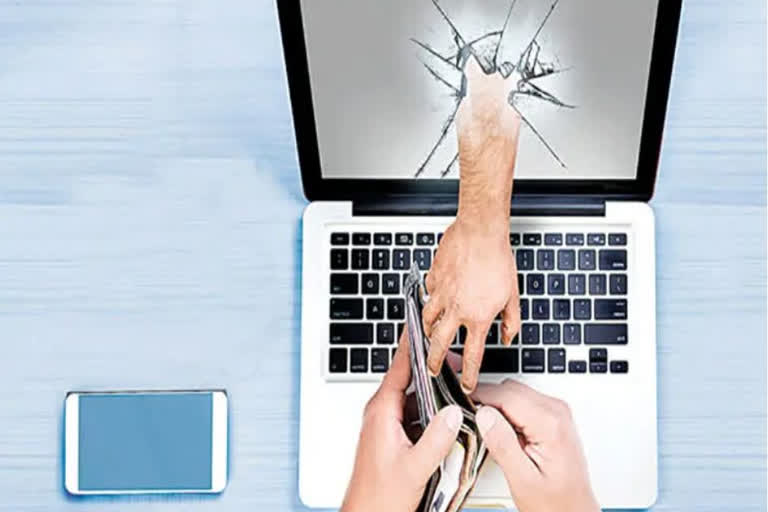Hyderabad: At a time when everyone is making digital payments, concerns are being expressed over endless instances of thefts by stealing OTP, PIN and passwords of customers' bank accounts. The customers are also not taking care to follow safeguards as they are attracted to convenience involved in digital transactions. As these digital payments are picking up speed, frauds are also increasing at the same pace. Cyber criminals are taking advantage of lack of awareness, which requires all of us to take all possible precautions to protect our hard earned money.
In currency-based transactions, we count notes once or twice before handing cash to others or at the bank counters. We take utmost caution while filling bank account number and name when depositing money. Similar care is missing present day digital transactions. This is becoming an advantage for fraudsters. Even the Reserve Bank of India (RBI) has been alerting public on this count. Still, digital frauds are being reported everyday.
These days, digital scamsters are using advanced knowhow like creating fake websites of popular banks. They are sending links to customers' mails or sms to their phones. They call them, saying they are from your bank. When they tell the last four digits of bank card, customers tend to believe them. If they share other sensitive details like OTP, thieves loot their money in seconds.
Also Read: White-collar crimes are harder to trace: Financial Crime Branch
Would you ever share you phone and social media passwords? You consider these details highly confidential. Then, you should keep your bank details even more secure. Account number, credit or debit car PIN and passwords should not be shared with anybody. If your family members are also using your cards, change passwords and PINs frequently. If anybody sends mails or makes calls, seeking OTP, consider it as an attempt to steal your money.
Never fall in the trap of fake apps and ads on social media. If you click on such apps, which look like genuine ones, they get downloaded into your phone directly. Then they will start taking all your crucial information from your mobile and computer. Sometimes, they take full control of your gadgets. Always check before clicking on such links in your mail. Instead, you go directly into their apps or websites. If you already have an app in your phone but a similar one is downloading again, fraud is involved in this. Only subscribe to those e-commerce apps, which have followers in lakhs. Check their credentials before giving permission to them to use your personal data like phone number, photos, etc.
Scanning QR code is enough to complete a payment. But if they ask for PIN also in the name of depositing money into your account, something is wrong. Your phone number is enough for them to send money to you. No need for QR code or mobile PIN. Sometimes, we receive frantic requests from our acquaintances' social media accounts seeking urgent monetary help. These frauds have increased of late. Persons known to you will call you if they need money. If you apply this simple logic, your money will not take wing.
Also Read: Jamtara cyber fraudsters spreading network across other cities
Fraudsters send sms and e-mail, saying you have won a lottery. They say they require your personal data, bank account and credit card details to send lottery money. If your believe them, you are sure to lose money. Just think how anybody can win a lottery without buying a ticket. Such basic logical reasoning will help in protecting yourself from financial frauds. Cyber thieves seek your KYC data in the name of the RBI guidelines. One thing is for certain, the RBI never seeks such personal information relating to public.
Beware of false customer care centres or service numbers. When we search for contact numbers of banks, insurance firms and Aadhaar centres, search engines provide lots of info. Sometimes, cyber thieves ensure that their phone numbers are shown prominently as such service numbers. If we call those numbers and share our personal data, our money will be stolen. Only go to the authorised websites of banks and insurance companies. Executives from your bank's customer care never ask for your OTP. They already know some details of your account based on your registered number. For authorisation, they only ask for answers to questions selected by you at the time of taking your online account.



